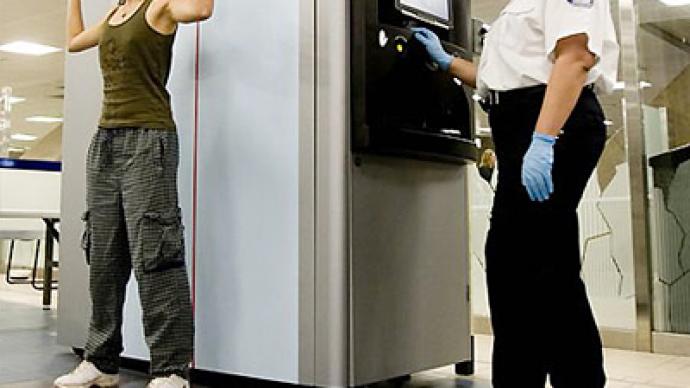Naked truth behind ‘naked body scanners’

John Tyner, a California man, became a national sensation when he recorded his encounter during an airport security pat-down. After the exchange, Tyner uploaded the video to the web and shortly after – it went viral.
"We can do that out here, but if you touch my junk I am going to have you arrested," Tyner told the airport security official.The US media has had a field day, reporting the pros and cons of body scanning machines and pat-downs in the name of security. But one question they failed to ask is: who is behind the push for the body scanners? As it turns out, former Secretary for the Department of Homeland Security, Michael Chertoff, now runs a security and risk management firm and one of his clients is Rapiscan, one of the biggest manufacturers of body scanning machines in the country. While the media continues to interview Chertoff about the value of body scanning machines, they fail to point out that he will benefit financially from the implementation of the machines."He’s abusing his relationship with the public by pretending to be a public servant and talking about how these body scanners are going to make us safer… He stands to benefit because he's getting paid by the manufacturing companies to go all over the television networks saying that these scanners are the solution to security," said Kate Hanni, the director of Flyersrights.org, a non-profit dedicated to passengers rights. Talk about body scanners became increasingly popular after the failed Christmas Day bombing last year. After that incident, two major contractors with powerful lobbying groups in Washington, DC recieved contracts for about $160 million dollars each to build body scanners for airports across the country. One of those contractors was Rapiscan."Americans should be angry because the $25 million in stimulus funds that were used to order the first 150 of these body scanners could have been used to create jobs. The taxpayers could have avoided what’s akin to martial law being implemented in the airport," Hanni said.












